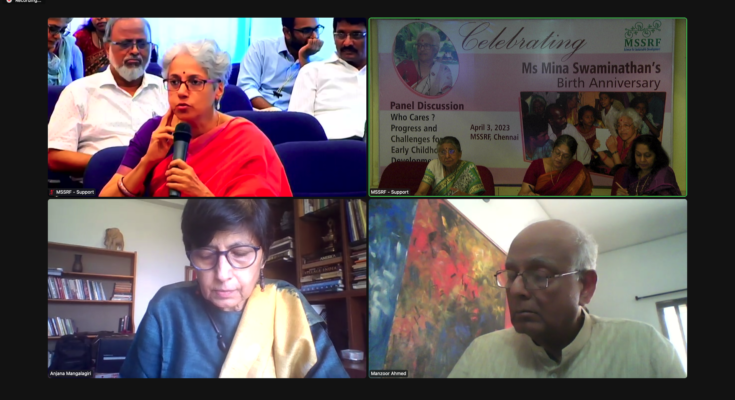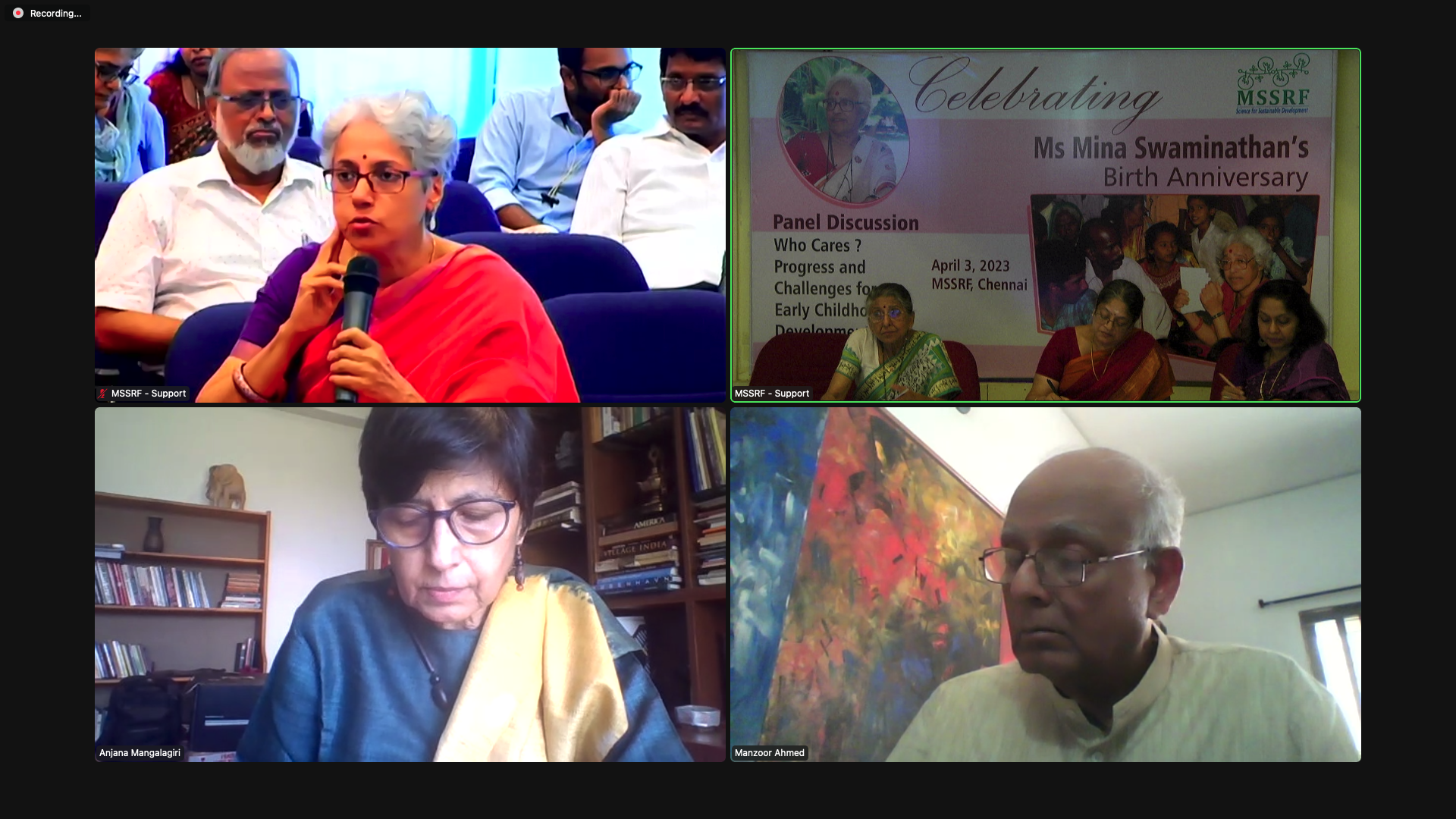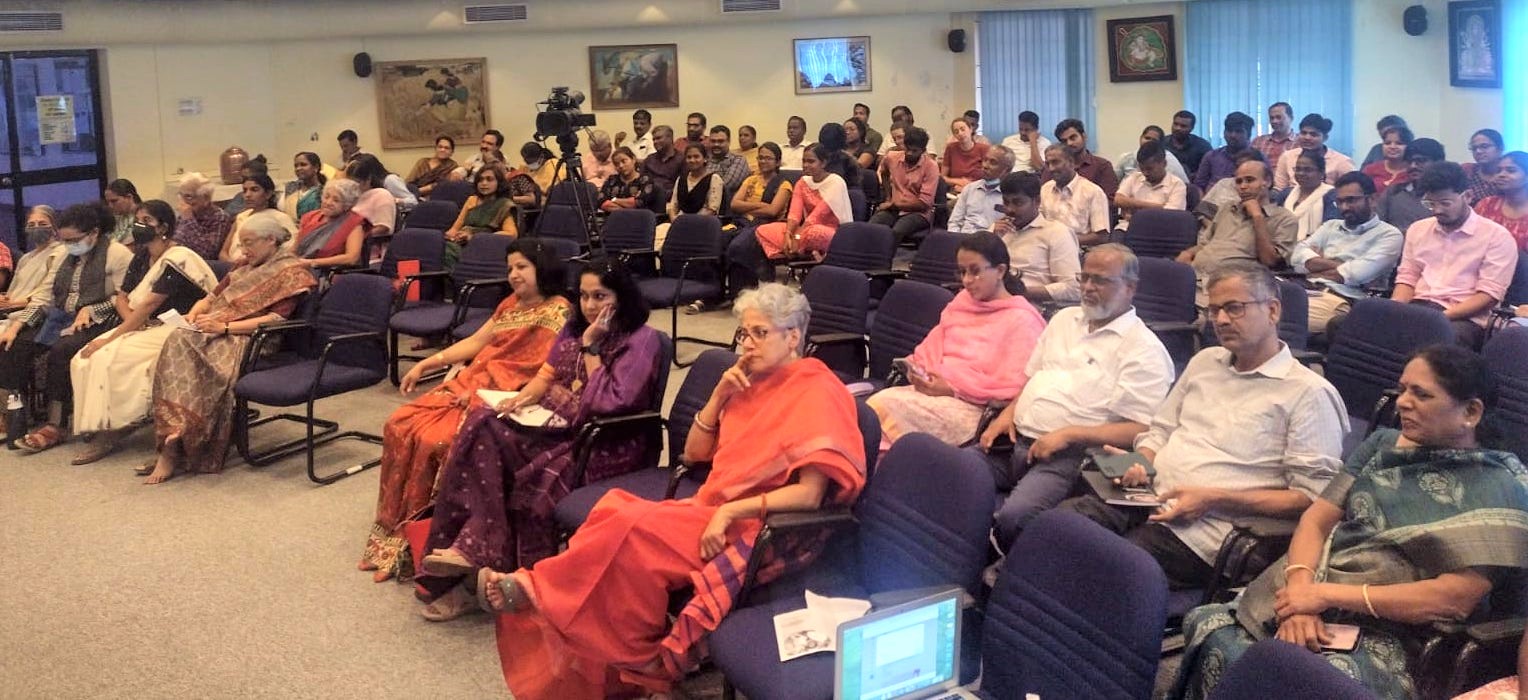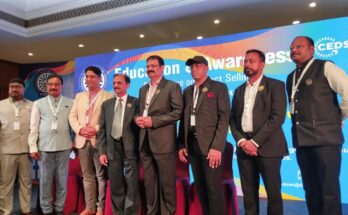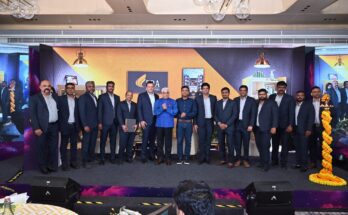Who Cares? Progress & Challenges for Early Childhood Development held on April 3, 2023, to honour Ms Mina Swaminathan as one of the architects behind ICDS (Integrated Child Development Services) and in memory of her first birth anniversary.
The science of child development established the crucial significance of the first six years of a child’s life requiri ng adequate health care, nutrition, psycho-social and intellectual stimulation, as well as a safe and supportive en vironment. Against this background, Mina Swaminathan’s 1985 book titled Who Cares? was an in-depth analysis of the childcare facilities for low-income working women, both in the organised and unorganised sectors. (Link to the book here: http://59.160.153.188/
Who Cares? pointed to a number of constraints in the provisioning of early childhood development programmes such as supply-side lacunae (training, resources, infrastructure), inappropriate provision of the law and location of services; poor implementation; absence of child-oriented perspective; lack of consultation with women, etc. It also provided a framework on the way forward – the need for building demand from below; the need for a divers ity of child care and development models and most importantly the need for financial commitments.
The panel discussion was organised to draw attention to the subject, and also discuss contemporary issues surro unding early childcare. The panel discussion was moderated by Dr Anjana Mangalagiri, Senior Fellow, Institute o f Social Sciences, New Delhi, formerly Chief of Education, UNICEF Country offices in Bangladesh, Mozambique a nd China, and panel members were Dr Adarsh Sharma, former Director of the National Institute of Public Coop er ation and Child Development, New Delhi; Dr Sumitra Mishra, Executive Director of Mobile Creches, New Del hi; Dr Manzoor Ahmed, Professor Emeritus, BRAC University, Dhaka; Chair of the Bangladesh Early Childhood Development Network, Dhaka, Bangladesh; and Dr R Sujatha, Consultant – SDG – UNICEF India with Planning and Development Department, Government of Tamil Nadu.
Welcoming the gathering Dr Soumya Swaminathan, Chairperson MSSRF spoke on the importance of healthcare, especially the first 1000 days of a child as the most crucial stage for child development, but also said that it is vit al to extend that care to children up to 6 years of age because adverse irreversible changes like stunting happen during that age. She also iterated that an annual event will be organised at MSSRF to discuss contemporary iss u es in Early Childhood Development (ECD) and Education in collaboration with other organisations.
Dr Sumitra Mishra, ED Mobile Crèches, New Delhi provided data on the situation of working mothers, highlig ht ing concerns that in India as 47% of women had permanently lost jobs after COVID. This was in stark contrast to 7% of men who were rendered jobless after the pandemic. Early Child Development should be made as public go ods through the system to strengthen both women and children, particularly those from the marginalised communities.
Dr Anjana Mangalagiri, Senior Fellow, Institute of Social Sciences, New Delhi, said that Ms Mina Swaminathan p layed a pivotal role in bringing early child care and education (ECCE) to the forefront. She was well ahead of the time and the strongest voice of ECD in the country. To improve the quality and quantity of ECCE services in Ind ia, it grassroots reality of women and child rights, also the triple burden of malnutrition among these vulnerable populations need to be addressed. Equitable access to the ECCE services must be ensured especially for the low-income, marginalised sectors of the society.
Dr Manzoor Ahmed, Professor Emeritus, BRAC University, Dhaka ; Chair of the Bangladesh Early Childhood De velopment Network, Dhaka, Bangladesh, stressed on the importance of policy integration. Despite the good po licy design, unresponsive governance and management persists. There should be well-designed action plans, all ocation of resources and an enabling environment for effective implementation of the ECCE policies.
Dr Adarsh Sharma, former Director of the National Institute of Public Cooperation and Child Development, New Delhi, spoke about policy formulation with a creative and inclusive approach involving all multi-sectoral stakeh olders, since it is essential to understand and effectively contextualise sensitive issues right from the maternity benefits to the right to education.
Dr R Sujatha, Consultant – SDG – UNICEF India with Planning and Development Department, Government of Ta mil Nadu, iterated that Laws and policies exist to address nutritional issues among 0-6-year-old children, but th ere is huge data gap to substantiate the aspects of quality of service and their delivery. ECCE means leaving no child behind, so there is needs to be a framework for disability and inclusive education.
Prof Nitya Rao, Director NISD & Professor of Gender and Development, University of East Anglia, UK, and Trus tee MSSRF gave the vote of thanks.
